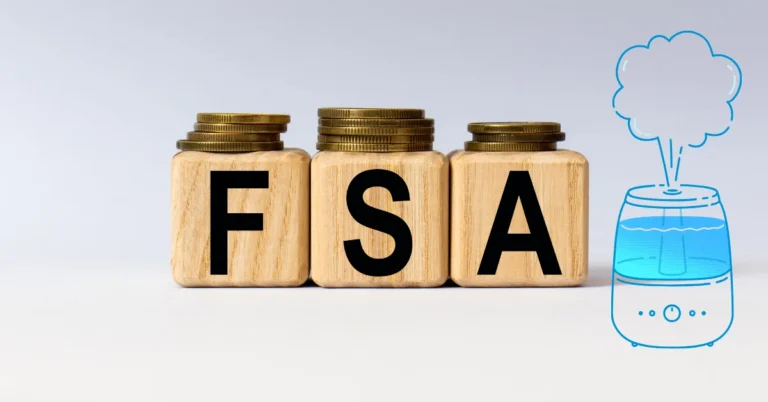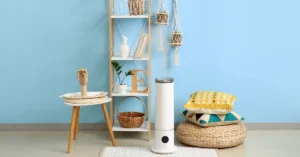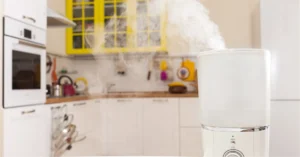Introduction
Heard about using your FSA or HSA to cover medical expenses, but unsure if humidifiers fit the bill? You’re not alone! With the rising popularity of health-related purchases like air purifiers and humidifiers, more people are curious about what qualifies for coverage under their Flexible Spending Accounts (FSA) or Health Savings Accounts (HSA).
Here’s the thing: humidifiers can be a game-changer for anyone dealing with dry air, asthma, or allergies. But the big question is: can you use your FSA or HSA to pay for them?
In this post, we’ll explore everything you need to know about FSA and HSA coverage for humidifiers. From understanding the rules to making sure your humidifier purchase qualifies, we’ve got you covered!
What Are FSA and HSA Accounts?
If you’re new to the world of healthcare savings, you might be wondering: what exactly are FSAs and HSAs? Both are tax-advantaged accounts that allow you to set aside money for eligible healthcare expenses, but they work slightly differently.
Flexible Spending Accounts (FSA) are typically offered by employers, and you can use pre-tax dollars to pay for qualifying medical expenses. The catch? FSAs usually come with a “use it or lose it” rule, meaning you need to spend the funds within a year or forfeit the remaining balance.
Health Savings Accounts (HSA), on the other hand, are available to people with high-deductible health plans (HDHPs). With an HSA, you can save money tax-free and roll over unused funds year after year. HSAs also offer investment opportunities, making them a great long-term savings tool.
So, how do these accounts help when it comes to buying a humidifier? Let’s get into that next!
Are Humidifiers Covered by FSA?
Now, let’s tackle the big question: does your FSA cover a humidifier? The answer isn’t a simple “yes” or “no.” It largely depends on the reason for the purchase and whether you can prove it’s medically necessary.
Here’s how it works: FSAs generally cover expenses for medical devices, treatments, and supplies that are used to treat or alleviate a medical condition. This is where things get tricky with humidifiers. While they improve air quality and offer health benefits, especially for people with respiratory issues, they aren’t always automatically considered medically necessary by FSA rules.
To get your humidifier covered by an FSA, you’ll often need a Letter of Medical Necessity (LMN) from your doctor. This document should explain that the humidifier is needed to treat a specific medical condition, like asthma, allergies, or chronic sinusitis. Without this letter, your FSA provider may deny the claim.
How to Get a Letter of Medical Necessity
- Talk to Your Doctor: Explain your symptoms or conditions that are worsened by dry air (such as allergies or asthma).
- Request an LMN: Ask your doctor to write a letter that clearly states why the humidifier is necessary for your health.
- Submit the Letter: Include the LMN when submitting your claim to your FSA administrator.
Once you’ve got your LMN in hand, your humidifier purchase is much more likely to be approved. It’s also a good idea to keep your receipts and any documentation from the store where you purchased the humidifier, just in case your FSA provider asks for more information.
Is a Humidifier HSA Eligible?

Good news for HSA users: humidifiers can be HSA-eligible—but, like with FSAs, there’s a catch. Just as with FSA claims, whether or not your humidifier qualifies under your HSA depends on its medical necessity.
While HSAs are a bit more flexible than FSAs, you will still likely need a Letter of Medical Necessity (LMN) from a healthcare provider. If your doctor can confirm that a humidifier is essential for treating a specific health condition, such as chronic allergies or asthma, your HSA funds can be used to cover the cost.
How to Check if Your Humidifier Is HSA Eligible
- Consult Your HSA Provider: Each HSA provider has its own guidelines about what’s eligible for reimbursement. Check with them to ensure your humidifier purchase qualifies.
- Keep Documentation: Like with FSAs, be prepared to provide proof of purchase, as well as a Letter of Medical Necessity, if required. You’ll want to keep any relevant receipts and doctor’s notes for your records.
Unlike FSAs, HSA funds roll over each year, so even if you’re not using your HSA for a humidifier right now, it’s nice to know you have the option to do so in the future!
Health Benefits of Humidifiers
You might be surprised at how much a humidifier can improve your health, especially if you deal with dry air in your home. Humidifiers work by adding moisture back into the air, which can have a big impact on your well-being, particularly for those with certain health conditions.
Here are some of the key health benefits:
- Relief for Respiratory Issues: Humidifiers are often recommended for people with asthma, allergies, or chronic sinusitis. Dry air can irritate your airways, making these conditions worse. By increasing the humidity in the air, a humidifier helps reduce symptoms like coughing, congestion, and difficulty breathing.
- Soothe Dry Skin and Eyes: Dry, heated air—especially in the winter—can cause skin and eye irritation. A humidifier can help restore moisture, making your skin feel more hydrated and reducing irritation in your eyes.
- Prevent Dryness in Throat and Nose: Ever wake up with a dry, scratchy throat or a nose that feels like sandpaper? That’s the result of low humidity in your bedroom. A humidifier can help by keeping your throat and nasal passages moist, making for more comfortable sleep.
- Aid in Recovery from Colds and Flu: A humidifier can also help alleviate the symptoms of a cold or flu by soothing dry coughs and reducing nasal congestion, allowing you to recover more comfortably.
If any of these issues sound familiar, it might be worth discussing with your doctor whether a humidifier could be considered a medical necessity for your condition, potentially making it FSA or HSA eligible.
How to Claim a Humidifier Using FSA or HSA
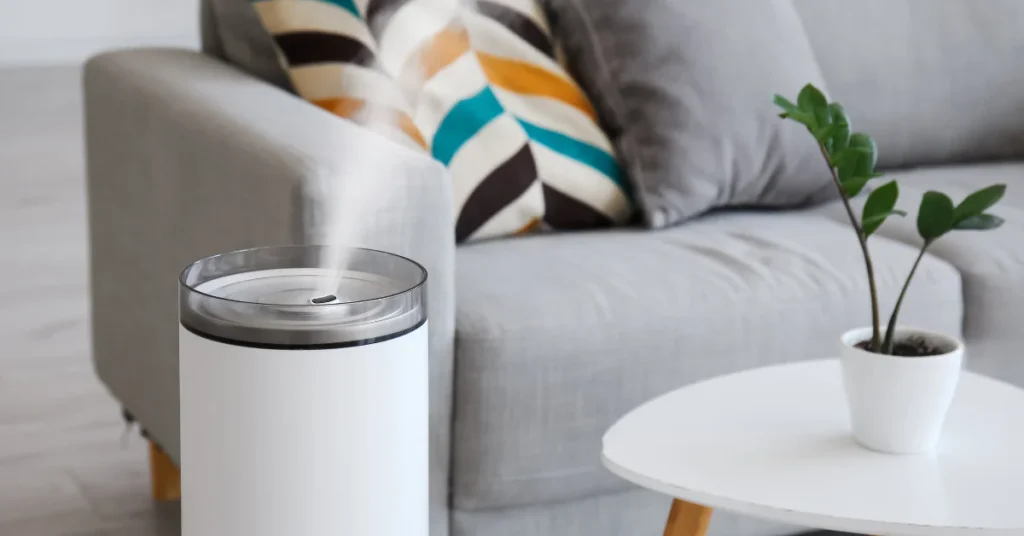
Once you’ve determined that a humidifier is medically necessary and you’ve gathered the required documentation, the next step is to submit a claim through your FSA or HSA. Here’s how you can do it, step-by-step:
1. Gather Required Documentation
- Letter of Medical Necessity (LMN): If required, this letter from your doctor is essential to prove that the humidifier is necessary for a specific medical condition.
- Receipt or Proof of Purchase: Keep the receipt from your humidifier purchase, as you’ll need it for reimbursement. Make sure the receipt clearly states the product and price.
2. Submit Your Claim
For FSAs and HSAs, the claim process usually follows a similar pattern:
- FSA: Visit your FSA provider’s online portal or download a claim form. You’ll typically upload or attach the LMN and the receipt. Be sure to provide any additional information they request.
- HSA: HSA accounts may be more flexible, especially if you’re using an HSA debit card. You can usually pay for the humidifier directly and keep the receipts for your records. If you’ve already purchased the humidifier, submit a claim online through your HSA portal.
3. Check for Reimbursement
Once your claim is submitted, it may take a few days to a couple of weeks for approval and reimbursement. Check your claim status regularly and reach out to customer service if there are any delays or issues.
4. What to Do if Your Claim Is Denied
- Review Denial Reason: If your claim is denied, check the reason. It could be as simple as missing documentation, or it may be that the humidifier is deemed non-eligible without proper justification.
- Resubmit: If possible, correct the issue, gather any missing information, and resubmit your claim.
Other FSA/HSA Eligible Health Products
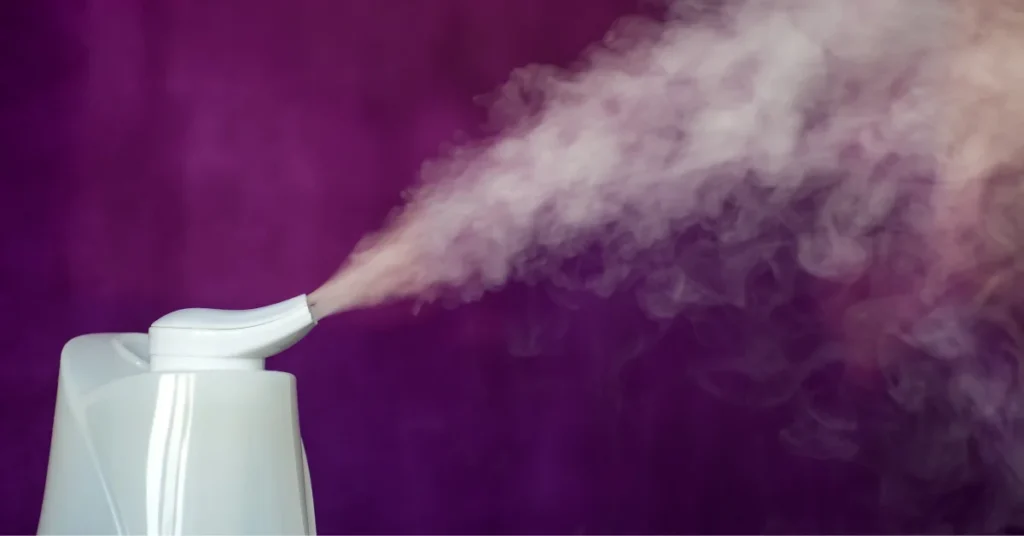
While humidifiers can be a great addition to your health management routine, you might be wondering what other health-related products qualify for FSA or HSA coverage. It turns out, there are plenty of everyday medical and wellness items that you can purchase using these tax-advantaged accounts. Here are just a few examples:
- Air Purifiers: If you have a medical condition like asthma or allergies, an air purifier may be eligible, especially with a Letter of Medical Necessity.
- Over-the-Counter Medications: Many common over-the-counter medications like pain relievers, allergy meds, and cold and flu treatments are eligible without a prescription.
- First Aid Supplies: Items like bandages, thermometers, and first aid kits are typically FSA and HSA eligible.
- Eyeglasses and Contact Lenses: Prescription eyeglasses, contact lenses, and even lens cleaning solutions are usually eligible for reimbursement.
- Medical Devices: Blood pressure monitors, glucometers, and other health-monitoring devices are often covered.
- Chiropractic Care: Some alternative medical treatments like chiropractic care may also be eligible, depending on your plan.
Make sure to check with your FSA or HSA provider for a full list of eligible items and services. You may be able to use these funds for much more than you think, helping you stay healthy while saving money!
Conclusion
So, does FSA or HSA cover humidifiers? The answer depends on your specific health needs and the documentation you provide. If you suffer from a condition like asthma or chronic allergies and can prove the medical necessity of a humidifier, you may be able to use your FSA or HSA funds to cover the purchase. Just be sure to consult your doctor, get a Letter of Medical Necessity, and keep all your receipts to make the process as smooth as possible.
Why not take a moment to check if your humidifier—or any other health-related product—is eligible for FSA or HSA coverage today? You might be surprised by what you can save!
